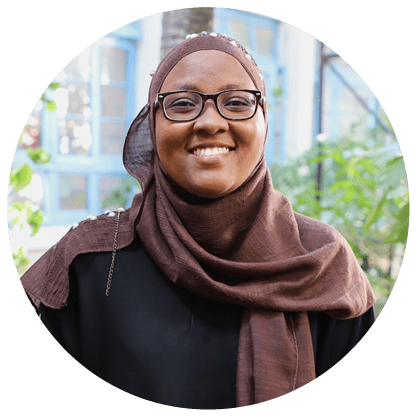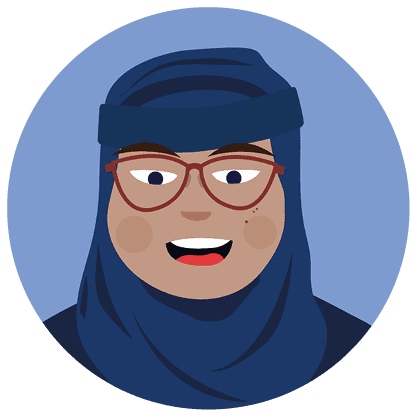Schools2030 KENYA
Transforming education in the coastal region of Mombasa and in Lamu.
In Kenya, participation in the Schools2030 programme is demand-driven – each year, the Schools2030 team advertises three new design challenges (one per age group) for teachers and youth partners to opt in should they wish to.
Each design team has between four to six teachers, who can be from the same or from different schools. The design teams are self-formed during the application, or assigned by Schools2030 staff from individual applicants based on their context. The teachers, with the support of design coaches, have regular check-ins to facilitate reflection and iteration of their innovations.
At the end of the design cycle, the Schools2030 Innovation Evaluation Tool is used to select ‘promising’ innovations, which will go onto further incubation and testing in other classrooms. Read more about the tool on our Innovate page, and view the Teachers’ Design Journey Roadmap for Schools2030 East Africa to learn more.
Our Team in KENYA

Halima Shaaban
Schools2030 National Coordinator

Zenab Said
Programme Manager – Coast Region

Muhsin Abubakar
Programme Officer

Anna Hadida
Project and Communication Officer

Nelson Muteti
Data Management Officer

Kennedy Kioli
Regional Design and Innovation Advisor

Rupert Corbishley
Regional Education Advisor, AKF East Africa

Emily Tusiime
Regional Assessment Coordinator, AKF East Africa
The Kenyan Education Context
Kenya is rich in both culture and geography, with a plethora of ethnic groups and languages within its borders and terrain that varies from tropical coastlines and rainforests to savannah and mountain ranges. Of a total population of 55 million, 39% of Kenyans (21.5 million) are under 15 years old; 1.13 million of these children are out of school.
Show More
Kenya’s education system is considered amongst the strongest on the continent, and the Government of Kenya has in recent years allocated significant budget to implement education reforms. These reforms include the introduction of the Competency Based Curriculum and measures to improve transition rates from primary to secondary school. Kenya’s education system does face some significant challenges, including large class sizes, high drop-out rates in secondary school and low learning outcomes in poorer communities. The Early Childhood Development sector has struggled with insufficient public spending and uneven service delivery.
In 2020, school closures interrupted learning for over 17 million children, who missed more than six months of formal education. During this time, there was an increased risk of violence, child labour and of deleterious mental well-being. Alongside a government keen on expanding holistic learning and teaching methods, Schools2030’s school-driven approach provides opportunity for Kenya’s education system to innovate with local insight in response to these challenges.
The Kenyan Education Context
Kenya is rich in both culture and geography, with a plethora of ethnic groups and languages within its borders and terrain that varies from tropical coastlines and rainforests to savannah and mountain ranges. Of a total population of 55 million, 39% of Kenyans (21.5 million) are under 15 years old; 1.13 million of these children are out of school.
Kenya’s education system is considered amongst the strongest on the continent, and the Government of Kenya has in recent years allocated significant budget to implement education reforms. These reforms include the introduction of the Competency Based Curriculum and measures to improve transition rates from primary to secondary school. Kenya’s education system does face some significant challenges, including large class sizes, high drop-out rates in secondary school and low learning outcomes in poorer communities. The Early Childhood Development sector has struggled with insufficient public spending and uneven service delivery.
In 2020, school closures interrupted learning for over 17 million children, who missed more than six months of formal education. During this time, there was an increased risk of violence, child labour and of deleterious mental well-being. Alongside a government keen on expanding holistic learning and teaching methods, Schools2030’s school-driven approach provides opportunity for Kenya’s education system to innovate with local insight in response to these challenges.
THE THREE-STEP MODEL IN KENYA
ASSESS
In February 2021, Schools2030 Kenya worked alongside national education stakeholders from the Ministry of Education, the Kenya Institute of Curriculum Development, the Early Childhood Network, and the Kenya National Examination Council to select five learning domains to prioritise for pre-school, primary school and secondary school students.
With support from Oxford MeasurEd, Schools20320 teams and teachers have co-designed learning outcome assessment tools for each of these domains, and these are used to collect data on students’ holistic learning levels at the beginning of each design cycle and throughout the implementation process to measure the efficacy of the innovation.
These tools were developed for primary and secondary level with help from teachers across ten schools, and were then reviewed and refined by a further 30 schools. At pre-primary level, Schools2030 Kenya worked alongside Save the Children’s to adapt their International Development and Early Learning Assessment (IDELA) tool to measure learning outcomes and with ECD Measure to adapt the Brief Early Childhood Quality Inventory (BEQI) tool to measure learning environment quality.
For more information about how this process works across the programme, see our Assess page.
Priority Learning Domains
KENYA
PRE-SCHOOL
- Literacy
- Numeracy
- Health & Nutrition
- Communication
- Problem Solving
PRIMARY SCHOOL
- Literacy
- Numeracy
- Health & Nutrition
- Science
- Leadership
SECONDARY SCHOOL
- Literacy
- Numeracy
- Digital Literacy
- Taking Responsibility
- Reconciling Tensions
Access examples of assessment tools
from across our programme countries.
All these tools are available free to download below and will continue to be refined and iterated to ensure robust psychometric validity.
It was just an idea half-baked – And then we joined Schools2030 and we were taught how to ideate, how to define, how to FIND OUT whether your idea is achievable – is it feasible, is it sustainable?
Lonah Joy, Youth Champion, Kenya
INNOVATE
The team in Kenya has been working closely with schools to develop innovations that reflect needs as determined by the learning domain selection and assessment data. Since the programme began, over 360 teachers have taken part in HCD workshops using a contextualised version of the Schools2030 Toolkit adapted for the Kenyan context. Find out more about this crucial step of the Three-Step model on our Innovate page. There are currently 11 promising innovations being implemented and tested in schools, and three more currently being incubated across a variety of schools and learning sites.
Download our HCD Tools for Kenya to start creating education innovations in your school.
Schools2030 HCD Toolkit: Kenya
Full version
Schools2030 HCD Toolkit: Kenya
Sprint version
Schools2030 HCD Facilitator Guide: Kenya
Schools2030 HCD School Leader Guide: Kenya
SHOWCASE
The ‘Showcase’ step provides an opportunity for teachers to tell the story of their design journey while receiving feedback from their peers. Showcasing is designed both to share knowledge of ‘what works’ in each classroom, as well as to celebrate the end of the innovation journey and recognising the achievement of the teacher involved, regardless of the outcome of their innovation.
Showcasing takes many forms, including events hosted by AKF Kenya, as well as at school education days (reaching educators, parents and the community), through country education events (reaching county governance) and through partner events (reaching other actors in the Kenya education ecosystem) – watch the video on the right to learn about Schools2030 showcasing at the Lamu Cultural Festival 2023. Teachers also upload their innovations and ideas to the Faved platform, so these can be shared with teachers from around the world.
Teachers prepare for these opportunities using Schools2030’s mini-course, ‘Inspiring Change through our Stories’. They are also able to exhibit any prototypes they have created, so that other teachers, learners and invitees can interact with and provide feedback for improvement.
In Kenya, county-level Showcase events take place in Lamu and Mombasa for all design teams/teachers. These events are usually attended by representatives from the Ministry of Education, county government partners, other teachers, learners, partners and civil society actors. A selection of the most promising innovations may go on to showcasing opportunities elsewhere, including at the annual Schools2030 Global Forum.
News and stories from Kenya
IMPACT AND LEARNING
Kenya
We regularly produce learning and research reports that inform and strengthen our programme delivery. Read and share our latest learnings for Kenya or click below to browse all our reports.

Research Report - Kenya

Learning Differences – Kenya

Kenya Learning Report 2024
OUR KENYAN partners
National Advisory Committee
The National Advisory Committee (NAC) provides strategic guidance, helps to amplify the work of teachers nationally and ensures that the Schools2030 programme in aligns to governmental education priorities. Representatives from the following organisations comprise the NAC in Kenya.
Ministry of Education
Teachers Service Commission
Kenya Institute of Curriculum Development
Kenya National Examinations Council
County Government, Mombasa
County Government, Lamu
State Department for Youth Affairs
Porticus Africa
Development Partners
Private Sector Partners
Madrassa Early Childhood Programme
Learning Partner – YUX
Country Assessment Partners and Learning Partners
In-country Assessment Partners initially supported the development of Schools2030 assessment tools and offer ongoing guidance for teachers in using them. Learning partners in each country track and measure the efficacy of the innovations and teacher professional development, and produce yearly reports with recommendations for how to make the programme stronger. Find out more about how our global and national partnerships work on our Coalition page.
Explore Schools2030 in our other countries.








